#Сказка о Царе Салтане
Explore tagged Tumblr posts
Text

russian childhood movies: the tale of tsar saltan
#russian childhood#russian cartoons#soviet cartoons#russian folklore#russian folktales#the tale of tsar saltan#53:08 / 53:08#Cinema mode#Сказка о царе Салтане#союзмультфильм#my gifs#elvengifs#was gonna make some more gifs but got lazy#this is the prettiest bit of the movie imho
93 notes
·
View notes
Text

Viktor Britvin's illustration for "The tale of Tsar Saltan" in verse by Alexander Pushkin.
#viktor britvin#виктор бритвин#alexander pushkin#александр пушкин#сказка о царе салтане#tale of tsar saltan#russian#slavic#russian tales#русские сказки#russian art#russian illustration#tale illustration#illustration
197 notes
·
View notes
Text


Большая иллюстрация на "Сказку о Царе Салтане". Идея возникла на уроке композиции, когда у детей была эта тема - подумала, почему бы самой не нарисовать Царевну-Лебедь! На данный момент - пока самый большой и трудозатратный арт за последние годы. Два варианта - с фоном и без. (Да, меня вдохновлял Врубель))) Очень понравилось прорисовывать различные детальки, украшения, перья... правда потом на этапе цвета с ними маялась! Ну и вообще я люблю различные декоративные линии и стилизацию! Тут с ними все прекрасно))))
#иллюстрация#арт#Сказка о Царе Салтане#Царевна Лебедь#Пушкин#книжная иллюстрация#vss art#fanart#fantasy#art#illustration#book illustration
18 notes
·
View notes
Text
Александр Зацепин готовит премьеру мюзикла на стихи Пушкина
В Москве на сцене Центрального Академического Театра Российской Армии состоится премьера мюзикла «Сказка о царе Салтане» на стихи Александра Сергеевича Пушкина и музыку Народного артиста России, композитора Александра Сергеевича Зацепина. Этим грандиозным проектом будет дан старт празднованию 225-летнего юбилея А. С. Пушкина, который весь мир будет отмечать в следующем году. Александр Зацепин –…

View On WordPress
#культураобъединяет#А.С.Пушкин#Александр Зацепин#Инсайд Групп Продакшн#Москва#Новый год#Светская жизнь#Сказка о царе Салтане#Театр Российской Армии#socialite.news#socialitenews
0 notes
Text
Новая Заря: "Сказка о царе Салтане" - New Dawn: "The Tale of Tsar Saltan" (1950)
Новая Заря: “Сказка о царе Салтане” – New Dawn: “The Tale of Tsar Saltan” (1950) “Сказка о царе Салтане” воплощает восточный характер ароматной красоты. Он великолепен: теплый с восточными сладковатыми нотками. Качественный советский винтаж подарит нам незабываемые впечатления и отличное качество. Этот аромат был создан в 1950 году. “The Tale of Tsar Saltan” embodies the oriental character of…
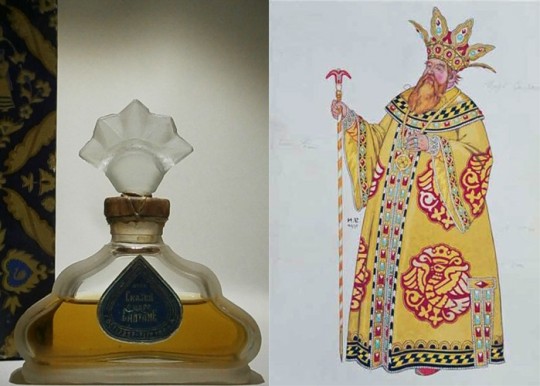
View On WordPress
#Aleksandr Serguéyevich Pushkin#Александр Сергеевич Пушкин#Виктория Власова#Иван Яковлевич Билибин#Николай Андреевич Римский-Корсаков#Новая Заря#Сказка о царе Салтане#Iván Yákovlevich Bílibin#New Dawn#Nikolái Andréyevich Rimski-Kórsakov#The Tale of Tsar Saltan#Unión Soviética#VIctoria Vlasova
0 notes
Text





Я нарисовала коллекцию Царевен Союзмультфильма по аналогии с Принцессами Диснея. Часть четвёртая. В этом посте у меня Царевны из мультфильмов: I drew a collection of Soyuzmultfilm Princesses similar to the Disney Princesses. In this post (Part 4) I have Princesses from cartoons: «Конёк-Горбунок» 1947 (The Little Humpbacked Horse) «Сказка сказывается» 1970 (The Tale is Told) «Сказка о царе Салтане» 1984 (The Tale of Tsar Saltan) «Последняя невеста Змея Горыныча» 1978 (The Last Bride of Zmey Gorynych) «Молодильные яблоки» 1974 (Apples Make You Young)
#soviet animation#Soyuzmultfilm#Zmey Gorynych#disney princess#царевны#tsarevny#princess#ussr#my fanart#rabemar art#soviet union#Конёк-Горбунок#The Little Humpbacked Horse
169 notes
·
View notes
Text
Александр Сергеевич Пушкин
Поговорим об авторе:
Происхождение Александра Сергеевича Пушкина идёт от разветвлённого нетитулованного дворянского рода Пушкиных, восходившего по генеалогической легенде к «мужу честну». Пушкин неоднократно писал о своей родословной в стихах и прозе; он видел в своих предках образец истинной «аристократии», древнего рода, честно служившего отечеству, но не снискавшего благосклонности правителей и «гонимого».
Биография
Пушкин родился 26 мая (6 июня) 1799 г. в Москве, в Немецкой слободе. В метрической книге церкви Богоявления в Елохове на дату 8 (19) июня 1799 года, в числе прочих, приходится такая запись:
Мая 27. Во дворе коллежского регистратора Ивана Васильева Скварцова у жильца его Моёра Сергия Львовича Пушкина родился сын Александр. Крещён июня 8 дня. Восприемник граф Артемий Иванович Воронцов, кума мать означенного Сергия Пушкина вдова Ольга Васильевна Пушкина
Летом родители увезли сына в Михайловское, а затем до весны 1801 года семья жила в Петербурге, у тёщи — Марии Алексеевны Ганнибал (1745—1818, урождённой Пушкиной, из другой ветви рода). В этот период вполне могла состояться часто упоминаемая встреча c Павлом I, о которой Пушкин пишет в строках «Видел я трёх царей…»
Летние месяцы 1805—1810 годов будущий поэт обычно проводил у своей бабушки по матери — той же Марии Алексеевны, в подмосковном селе Захарове, близ Звенигорода. Ранние детские впечатления отразились в первых опытах пушкинских поэм, написанных несколько позже («Монах», 1813; «Бова», 1814), в лицейских стихотворениях «Послание к Юдину» (1815), «Сон» (1816).
Поэмы
Руслан и Людмила (1817—1820)
Кавказский пленник (1820—1821)
Гавриилиада (1821)
Вадим (1821—1822)
Братья разбойники (1821—1822)
Бахчисарайский фонтан (1821—1823)
Цыганы (1824)
Граф Нулин (1825), (первое издание)
Полтава (1828—1829)
Тазит (1829—1830)
Домик в Коломне (1830)
Езерский (1832)
Анджело (1833)
Медный всадник (1833)
Роман в стихах
Евгений Онегин (1823—1832)
Драматические произведения
Борис Годунов (1825)
Скупой рыцарь (1830)
Моцарт и Сальери (1830)
Каменный гость (1830) ФЭБ: Пушкин. Каменный гость. — 1948 (текст)
Пир во время чумы (1830)
Русалка (1829—1832)
Стихотворения
1813—1825 годов
1826—1836 годов
Проза
Арап Петра Великого (1827)
Роман в письмах (1829)
Повести покойного Ивана Петровича Белкина (1830)
Выстрел
Метель
Гробовщик
Станционный смотритель
Барышня-крестьянка
История села Горюхина (1830)
Рославлев (1831)
Дубровский (1833)
Пиковая дама (1834)
История Пугачёва (1834)
Кирджали (1834)
Египетские ночи (1835)
Путешествие в Арзрум во время похода 1829 года (1835)
Капитанская дочка (1836)
Сказки
Жених (1825)
Сказка о попе и о работнике его Балде (1830)
Сказка о медведихе (1830—1831)
Сказка о царе Салтане, о сыне его славном и могучем богатыре князе Гвидоне Салтановиче и о прекрасной царевне лебеди (1831)
Сказка о рыбаке и рыбке (1833)
Сказка о мёртвой царевне и семи богатырях (1833)
Сказка о золотом петушке (1834)
#книги#пост на русском#книжный блог#книга#книжнаяполка#русские блоги#заметки из книг#книголюбы#по русски#из книги#про книги#о книгах#книгинашевсе#читайте книги#книжные полки#книжный пост#книжныйотзыв#книжки#книжный мир#книжный обзор#чтение#место для чтения#читаем#инт��ресные книги
16 notes
·
View notes
Text
Что вы не знали финно-уграх ⁉ Финно-угры — одна из самых крупных этноязыковых общностей в Европе. В одной только России живет 17 народов финно-угорского происхождения. Финская «Калевала» вдохновляла Толкиена, а ижорские сказки — Александра Пушкина. ✅ Кто такие финно-угры? Финно-угры — одна из самых крупных этно-языковых общностей на территории Европы. К ней относятся 24 народа, 17 из которых проживает в России. Саамы, ингерманландские финны и сето живут как в России, так и за ее пределами. Финно-угры делятся на две группы: финскую и угорскую. Общая их численность на сегодня оценивается в 25 миллионов человек. Из них венгоров около 19 миллионов, 5 миллионов финнов, около миллиона эстонцев, 843 тысячи мордвы, 647 тысяч удмуртов и 604 тысячи марийцев. ✅ Где живут финно-угры в России? Учитывая нынешнюю трудовую миграцию, можно сказать, что везде, однако самые многочисленные финно-угорские народы имеют в России свои республики. Это такие народы как мордва, удмурты, карелы и марийцы. Есть также автономные округа ханты, манси и ненцев. Коми-Пермяцкий автономный округ, где коми-пермяки были в большинстве, объединен с Пермской областью в Пермский край. У финно-угров вепсов в Карелии есть своя национальная волость. Ингерманландские финны, ижора и селькупы автономной территории не имеют. ✅ Москва — финно-угорское название? По одной из гипотез, ойконим Москва имеет финно-угорское происхождение. С языка коми «моск», «моска» переводится на русский как «корова, телка», а «ва» переводится как «вода», «река». Москва в таком случае переводится как «коровья река». Популярность этой гипотезе принесла её поддержка Ключевским. Русский историк XIX-XX века Стефан Кузнецов также считал, что слово «Москва» финно-угорского происхождения, но предполагал, что оно происходит от мерянских слов «маска» (медведь) и «ава» (мать, самка). По этой версии слово «Москва» переводится как «медведица». Сегодня эти версии, впрочем, опровергаются, так как в них не учитывается древнейшая форма ойконима «Москъвь». Стефан Кузнецов же использовал данные эрзянского и марийского языков, в марийском языке же слово «маска» оказалось только в XIV-XV веках. ✅ Такие разные финно-угры Знаменитая Арина Родионовна, няня Пушкина, как известно, оказала сильное влияние на поэта. Примечателельно, что она была финно-угорского происхождения. Она родилась в деревне Лампово в Ингерманландии. Это многое объясняет в понимании сказок Пушкина. Мы знаем их с детства и считаем, что они исконно-русские, однако их анализ говорит о том, что сюжетные линии некоторых пушкинских сказок восходят к финно-угорскому фольклору. Так, например, в основе «Сказки о царе Салтане» — сказка «Чудесные дети» из вепсской традиции (вепсы — малочисленные финно-угорский народ). Первое большое произведение Пушкина, поэма «Руслан и Людмила». Одним из главных его героев является старец Финн, волшебник и чародей. Имя, что называется, говорящее. Филолог Татьяна Тихменева, составитель книги «Финский альбом» также отмечала, что связь финнов с колдовстом и ясновидением признавалась всеми народами. Самими финнами способность к магии признавалась выше силы и мужества и почиталась как мудрость. Неслучайно поэтому главный герой «Калевалы» Вяйнемейнен не воин, а пророк и поэт. Наина, еще один персонаж поэмы, также несет в себе следы финно-угорского влияния. По-фински женщина — «nainen». Ещё один небезынтересный факт. Пушкин в письме Дельвигу в 1828 году писал: «Къ новому году, вѣроятно, вернусь къ вамъ въ Чухляндию». Так Пушкин назвал Петербург, очевидно признавая исконность на этой земле финно-угорских народностей. https://cyrillitsa.ru ПРОШЛОЕ - РЯДОМ! 🌳📚🔎 🌳📚🔎 🌳📚🔎 🌳📚🔎 🌳📚🔎 🌳📚🔎 🌳📚🔎 🌳📚🔎 📜🔍 Услуги составления родословной, генеалогического древа. 📖 ЗАКАЗ РОДОСЛОВНОЙ в нашей группе ВК: http://vk.com/app5619682_-66437473 ✉ Наша почта: [email protected]
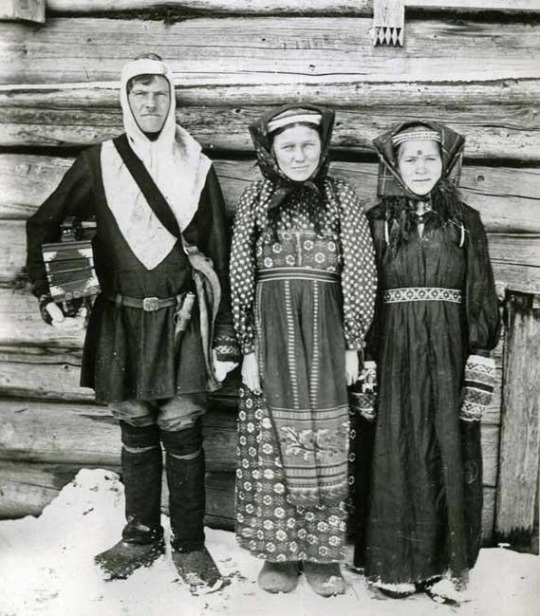
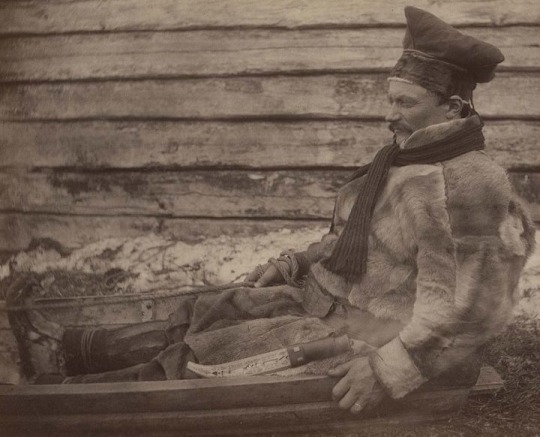
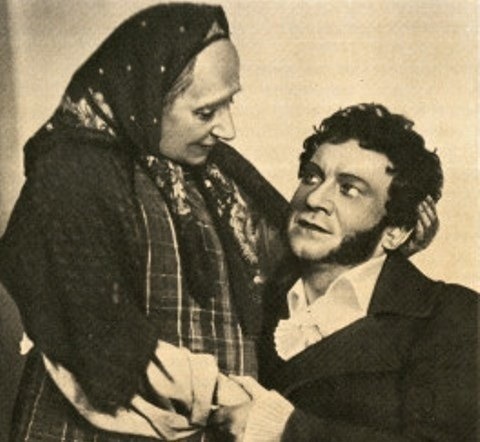
0 notes
Video
youtube
Чтение Книги. АСМР. Пушкин "Сказка о царе Салтане". #пушкин, #asmr, #ст...
0 notes
Text
Больше, чем картинки, больше, чем текст
36. Сказка о царе Салтане. В. Конашевич, опять же. По картинкам я писал целые миры. Текст - такое себе. И его же Плывет-плывет кораблик. Ну, Конашевича мы все знаем, я думаю, он формировал наше детство)) ну, у кого нет, ясен-красен: Мне фас шаль!))))))














0 notes
Text
12 марта обучающиеся хорового отделения Ордынской детской школы искусств Шкундалева Алина, Стасюлис Кира, Стасюлис Эмилия посетили очередное занятие народного отделения региональной вокальной творческой мастерской для одарённых детей "ЛАД".
Занятие по сценической речи провела преподаватель Борздая А. Н. Также ребята готовили музыкальную сказку по А. С. Пушкину "Сказка о царе Салтане", под руководством А. Н. Борздой и А. В. Лысяковой. Было очень интересно!







0 notes
Text
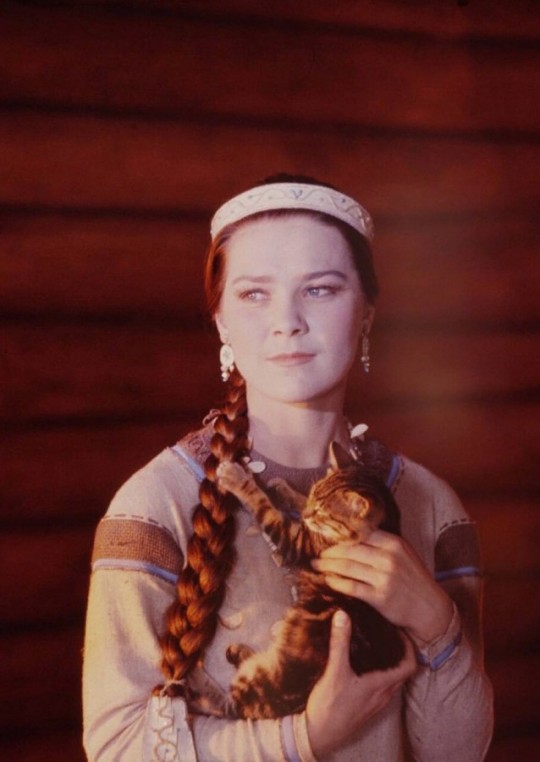
Larisa Golubkina on the set of The Tale of Tsar Saltan, 1966, dir. Alexander Ptushko
#Larisa Golubkina#Alexander Ptushko#The Tale of Tsar Saltan#Сказка о царе Салтане#Alexander Pushkin#princess#fantasy#ussr#soviet#soviet cinema#soviet film#60s#1960s#retro#vintage#60s style#60s movies#1960s movies#russian actress#russia#60s women#1960s cinema#60s girl#60s film#60s beauty#soviet actress#vintage dress#kitten#braid#hairstyle
78 notes
·
View notes
Text
Have you ever read ummmm
not sure what the title would be in English but in Russian it's сказка о царе салтане
which is umm
the story of the ______ (literally just know that's a tsar is the king and then I believe salatan is like the kingdom? (russian child who literally just read the book in daycare in russian))
It's a Russian children's story and I was going to try and summarize but then it got out of hand (as it always does when I tell someone about this story) so I just put it under the cut if you want to read. (some details may not be entirely correct since it has been a while since I last read it which made me realise that I want to reread it again because it slaps)
There're 3 sisters and the King walks by their cottage one night and falls in love with the youngest sister and the two get married. That sister is like the least favourite child in the family and so her sisters and her mother are all mad that she's the one who got to marry the king (why the king was looking in the windows of random people's houses is beyond me). They have a child but before the child is born the king goes to fight in a battle. The sisters take this opportunity to throw the Queen and the child into the sea inside the barrel. The boy grows up (I believe) inside the barrel and then they finally hit shore when he's grown up (Russian children's stories am I right?) and meets a swan that's like 'yeah you seem chill, I can like do you some favours and stuff you know? Cause I've got magic powers and all that'. And he's like 'oh, I want to see my dad'. So the swan turns him into a mosquito so he gets to fly across the sea to see what his dad looks like and sees his aunt (I guess) talking shit so he bites her eye (he's a mosquito right now you see). And the aunts and grandma are talking about like 'oh, there's this kingdom that's got all this stuff' and when he comes back he tells the swan who like, gives their kingdom that they're in that cool stuff, like a squirrel who turns nuts into emeralds and ruby's after his first visit, then there's like this huge army the second time after he goes back to visit as a wasp and stings his other aunt in the other eye, and then the third time his grandmother says 'oh, there's like this really beautiful lady who emerges from the water' and he stings her in the nose as a bee I believe. And he goes back and tells the swan who literally turns into said beautiful woman and they get married and his parents reunite and all that.
I'm also tired so this was a very low effort thing
and I didn't want to go into too many details
who else is going to try to skip school to read Unraveled in one sitting the day it comes out
48 notes
·
View notes
Text
Премьера детского спектакля «Сказка о царе Салтане»
22 декабря в Лялин-центре состоится премьера спектакля «Сказка о царе Салтане» режиссера и основателя театра «ЭкторБейби» Анны Баздыревой. Уникальное пространство Лялин-центра, в стенах которого библиотека объединена с театром, превратится в волшебное царство Салтана, больше напоминающее допетровскую Русь и погружающее юного зрителя в мир гениальной поэзии Александра Сергеевича Пушкина. Сюжет…
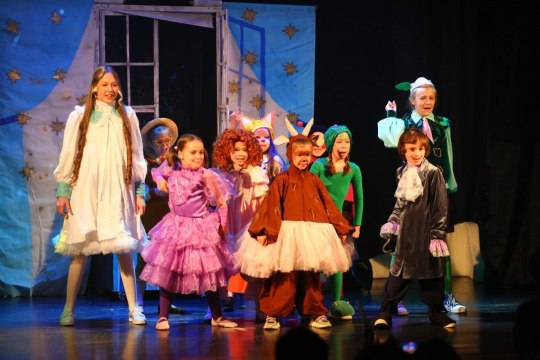
View On WordPress
0 notes
Text


Lina Bruna Rasa (24 September 1907 – 20 September 1984) was an Italian operatic soprano. She was particularly noted for her performances in the verismo repertoire and was a favourite of Pietro Mascagni who considered her the ideal Santuzza. Bruna Rasa created the roles of Atte in Mascagni's Nerone, Cecilia Sagredo in Franco Vittadini's La Sagredo and Saint Clare in Licinio Refice's 1926 oratorio, Trittico Francescano. She also sang the role of Tsaritsa Militrisa in the Italian premiere of Nikolai Rimsky-Korsakov's The Tale of Tsar Saltan. d began her music studies at age 14, studying with Guido Palumbo and Italiano Tabarin in her native Padua, and later in Milan with Manlio Bavagnoli. Her appearance in a 1925 concert at the Teatro La Fenice singing the "Suicidio" aria from La Gioconda created a sensation. By the end of that year, at the age of 18 she made her operatic debut singing the role of Elena in Boito's Mefistofele at the Teatro Politeama in Genoa. She made her debut at the Teatro Regio in Turin in the same role on 21 February 1926 and was engaged by Toscanini to sing Elena for the opening of the 1927 season at La Scala where she made her debut on 16 November 1927. She went on to sing in many notable performances there including the world premieres of Mascagni's Nerone, Franco Vittadini's La Sagredo, the Italian premiere of Rimsky-Korsakov's The Tale of Tsar Saltan and some of the earliest performances Wolf-Ferrari's Sly, Vincenzo Michetti's La Maddalena, and Respighi's La campana sommersa. In a departure from her usual repertoire, she sang Mathilde for La Scala's celebration of the 100th anniversary of Rossini's William Tell. In the years between 1926 and 1933 Bruna Rasa sang throughout Italy as well as in Montecarlo, Nice, Lausanne and Barcelona where she sang Aida at the city's Gran Teatre del Liceu. Further afield, she travelled to Egypt in 1927 where she sang in Aida and Omòniza in Cairo's Teatro Reale. In 1929, she was engaged by the theatrical impresario, Faustino Da Rosa, for a series of performances in South America. She made her debut at the Teatro Colón in Buenos Aires on 14 June 1929 as Maddalena de Coigny in Andrea Chénier with Georges Thill as Chénier. She also sang there in Cavalleria Rusticana, Tosca, and La campana sommersa in its South American premiere. In August, Da Rosa's singers went on to Uruguay where she sang Andrea Chénier (again with Thill) and Tosca at the Teatro Solis in Montevideo. Bruna Rasa's earliest assumptions of Santuzza in Cavalleria rusticana, the role for which she is best remembered today, were in 1927 in Lausanne and Bari. The opera's composer, Pietro Mascagni, and Bruna Rasa met for the first time in Venice in July 1928 when he conducted a performance of Cavalleria Rusticana in the Piazza San Marco before a crowd of 35,000 people. Mascagni was struck by her dramatic intensity and her powerful yet beautiful voice. She was to become his favourite Santuzza. He subsequently conducted many of her performances in the role both in Italy and abroad and chose her for the 1940 recording of Cavalleria rusticana which marked the 50th anniversary of its premiere. It is the only full-length studio recording of the work which is conducted by Mascagni himself. On 20 July 1942, she sang in Cavalleria rusticana at the outdoor arena in Pesaro. It was to be her final performance in a staged opera. Lina Bruna Rasa spent the last 36 years of her life in a mental hospital in Milan, where she died.
#Lina Bruna Rasa#Aida#Giuseppe Verdi#L'Africaine#Giacomo Meyerbeer#Carmen#Georges Bizet#Cavalleria rusticana#Pietro Mascagni#La forza del destino#La Gioconda#Amilcare Ponchielli#Guillaume Tell#Gioachino Rossini#Mefistofele#Arrigo Boito#Nerone#Otello#Сказка о царе Салтане#Nikolai Rimsky-Korsakov#Tannhäuser#Richard Wagner#Tosca#Giacomo Puccini#Il trovatore#La Wally#Alfredo Catalani#La Scala#Teatro alla Scala
2 notes
·
View notes
Photo






Сказка о царе Салтане | The Tale of Tsar Saltan (1984)
#gifs#animation#soviet animation#fairytales#сказка о царе салтане#the tale of tsar saltan#pushkin#my gifs#q#animationedit#soyuzmultfilm#nondisneyedit#filmedit
87 notes
·
View notes